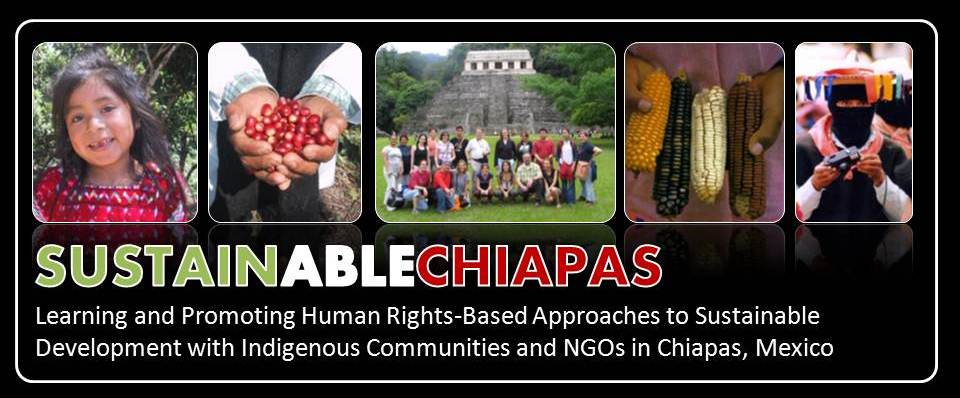
Development is a kaleidoscope with many shapes, colors, and dimensions. At the social level, groups that are able to create peaceful relationships internally and externally are said to be progressing. Also, developed are those that have the capability to safeguard their independent position and live harmoniously. Populations are considered to be economically progressive when its members are able to effectively interact with the environment. Development ideas like these have prevailed since the Spanish first set foot in Mexico. For colonizers advancement included an increase in production. If the production of a particular society was not up to par with the dominant standard, there would be a change in the quality or character of its people. In Chiapas Indigenous Peoples were and still are targeted. Religious beliefs and political ideologies included. The presence of capitalism in a place like Chiapas has created tensions amongst its people, increased poverty, and deteriorated its environment.
Production and wealth are measurement tools of underdevelopment. The poor countries of the global South are considered to be “backwards” because of their unfortunate economic positions. However, one may ask who is really underdeveloped? Those that work hard to make a living on a day to day basis and fight for their dignity, or those that exploit, oppress, and massacre? The material wealth of a nation in having things such as social services, schools, hospitals, etc. have nothing to do with the level of “development” of a given community. Take into consideration the political structure of some indigenous groups in Chiapas, for example, Las Abejas. The members of this group have been able to organize themselves in a way that perhaps people in more economically stable countries would not be able to do so, and they have less resources. Furthermore, the Indigenous Peoples of Chiapas are living in a paradox of underdevelopment where, for instance, their own material production is landing in the hands of foreigners and they are not attaining the profits they deserve.
Developed or underdeveloped, Zapatismo in Chiapas emerged. Indigenous Peoples are ready to be heard. Article 39 of the Mexican constitution says that any public power derives from the people and is instituted for their benefit, and that at any time the people have the inalienable right to alter or to modify their form of government. The Mexican government failed its people and even signed the NAFTA, which only benefits about ten percent of the Mexican population and forgets about the “others.” Therefore, the EZLN with the use their words and not necessarily weapons want to put a halt to the genocide that has killed Tzotzil, Tzeltal, Tojolabal, and Chontal people in places like Acteal. Members of the EZLN want to work their land, feed their people, and put an end to curable diseases in their villages. The EZLN teaches us that one of the most important steps towards a more sustainable future is the recognition of those that are not necessarily like us. From the EZLN we also learn that we must have the ability to decolonize our minds, move away from our set political and social conditions, and have the ability to understand the system that oppresses us and eventually work for its removal from power. It will be perhaps then that we will be able to achieve justice, liberty, equality, and dignity.
REFERENCES
(subcomandante.), Marcos, Simon J. Ortiz, Elena Poniatowska, and David Romo.
Questions & swords. Cinco Puntos Press, 2001.
Farmer, Paul. Pathologies of power.
Rodney, Walter. How Europe underdeveloped Africa.
Smith, Linda Tuhiwai. Decolonizing methodologies. Zed Books, 1999.
